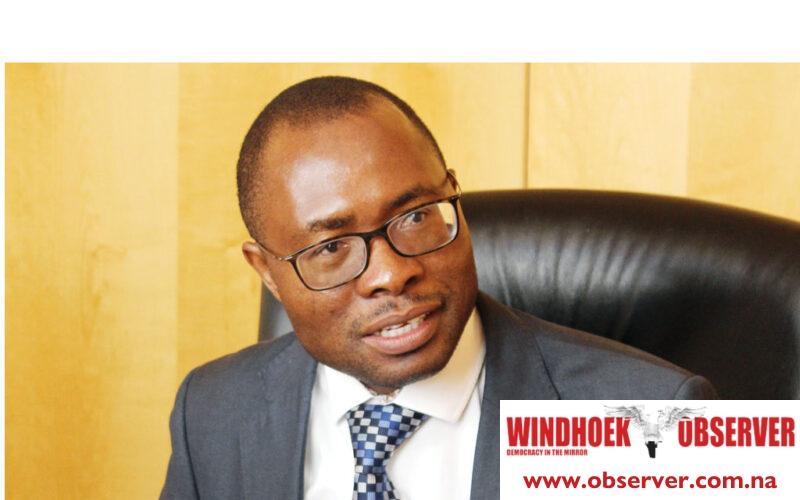Martin Endjala
The highly anticipated mid-term year budget for the 2023/24 financial year, saw close to N$2.14 billion allocated to unforeseeable and unavoidable emergencies.
Iipumbu Shiimi, the Minister of Finance and Public Enterprises, announced the development yesterday in Parliament while tabling the mid-term budget.
These additional expenditure allocations Shiimi explained, represent the unforeseeable and unavoidable emergency items such as health, and drought among others which cannot be postponed until the tabling of the 2024/25 main budget next year.
In addition, the operational budget was increased by N$2.5 billion, while the development budget remains unchanged at N$6.5 billion, and an additional N$2.3 billion is allocated to debt servicing and honouring contingent liabilities.
“In the process of compiling this Mid Year’s Budget Review and in keeping with the intended purpose of undertaking a budget review, we have adopted a broad policy of prioritising only unforeseeable and unavoidable emergencies at mid-term.
Nevertheless, despite clear guidelines on what constitutes unforeseeable and unavoidable emergency expenditures issued to Ministries and Agencies during consultations, additional expenditure requests to the tune of N$5.3 billion were received for consideration,” said Shiimi.
Following strong revenue performance which resulted in an upward revision of the collections for the 2023/24 financial year by N$3.8 billion. As such, Shiimi explained that consideration was made to keep additional expenditure broadly aligned with the anticipated additional revenue collections.
In addition, given the low execution rate on several projects, a total of N$167.3 million was identified for re-allocation across votes within the development budget.
In keeping with the fiscal sustainability narrative, Shiimi noted that the ministry balanced the expenditure requests against the available resource envelope, while cognisant of the imperative to manage the borrowing requirement.
As a result, the 2023/24 Appropriation Amendment Bill provides for additional expenditure allocations. The ministry has set aside N$643 million to supplement the drought relief provisions under the Office of the Prime Minister covering both food distribution as well as support to affected farmers.
Additionally, a total of N$438.5 million has been added to the goods and services budgets of various votes including, among others, N$250 million to supplement the pharmaceutical budget at the Ministry of Health and Social Services, N$40 million to complement the special fund for uncommon diseases.
Another N$25 million to the Ministry of Justice to cover escalating legal costs and supplement the Legal Aid budget as well as N$17 million to the Ministry of Environment, Forestry and Tourism to support anti-poaching activities.
N$14.5 million was also allocated to the Ministry of Sports, Youth and National Service for, among others, youth empowerment projects and youth credit schemes.
N$1.2 billion was allocated to subsidies and other transfers to government organisations inclusive of N$376.3 million to cover shortfalls in student funding at Namibia Student Financial Assitant Fund, N$230 million to support TransNamib operations, N$200 million to meet an anticipated deficit on the Public Servants Medical Aid Scheme.
As well as N$105.3 million to supplement the contingency budget and N$87.5 million for Namibia’s contribution to the deployment of the Southern African Development Community mission in the Democratic Republic of Congo.
The ministry has also allocated a total of N$167.3 million from lagging projects to address urgent development priorities including N$129.7 million to expedite the construction of classrooms countrywide.
Considering the rising interest rate environment, Shiimi explained that the allocation for interest payments has been increased significantly by N$1.7 billion to meet anticipated shortfalls as the interest-sensitive component of the debt portfolio reprices at higher rates.
An additional N$602.8 million has been set aside under other statutory payments to honour calls on loan guarantees.
The minister said the strong medium-term fiscal outcomes necessitated an upward revision in revenues for the 2023/24 financial year by N$3.8 billion, from the indicative N$74.7 billion anticipated previously in the main budget.
Compared to last year, the revision represents a 22.1 percent growth in revenue year-on-year. Over the medium-term expenditure framework period, revenue is forecast to grow by an average of 8.8 percent to reach about N$82.0 billion by the 2025/26 financial year. Overall, total expenditure amounted to N$74.4 billion, slightly lower than the revised udget estimates of N$74.9 billion.




